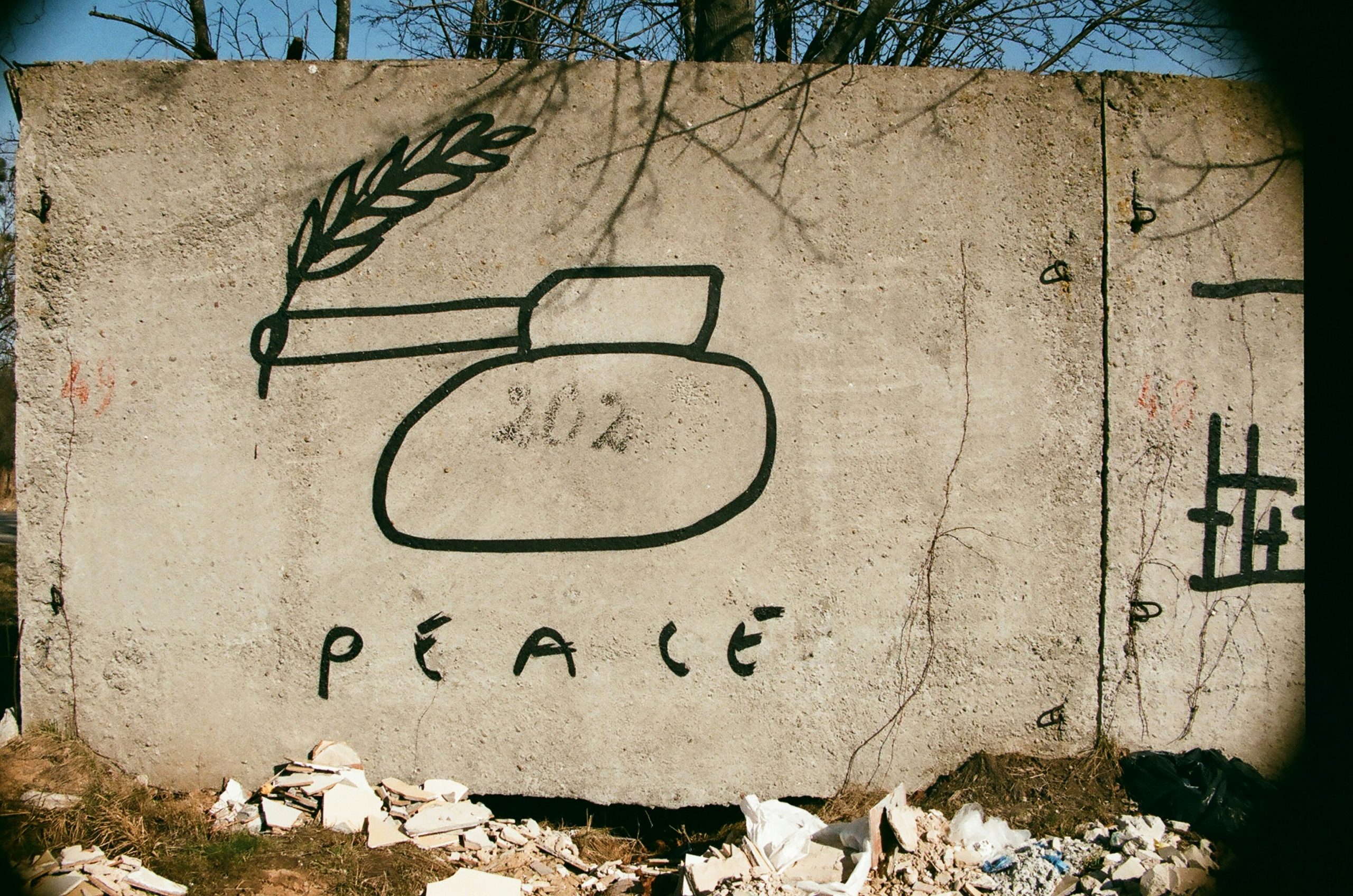What Would Muhammad Do? – Silencing The Prophet: Liberal Islam’s Cowardice In Gaza
It was once the darling slogan of liberal Muslims in the West, their talisman against suspicion, their get-out-of-Guantánamo-free card. In the shadow of 9/11, when Muslims were being strip-searched at airports, interrogated at borders, and rounded up in their neighborhoods, Western Muslim leaders found themselves endlessly parroting this question. It was their shield, their mantra, their desperate attempt to prove to the “civilized” world that they were not, in fact, bloodthirsty savages. The Prophet Muhammad  , they said, was compassionate, tolerant, patient, merciful, endlessly forgiving—more yoga instructor than warrior, more monk than statesman. And so, every Friday sermon, interfaith dinner, and panel discussion circled back to the same soothing line: “What would Muhammad do?”
, they said, was compassionate, tolerant, patient, merciful, endlessly forgiving—more yoga instructor than warrior, more monk than statesman. And so, every Friday sermon, interfaith dinner, and panel discussion circled back to the same soothing line: “What would Muhammad do?”
But how curious the silence today. Gaza burns, Palestinians are starved and slaughtered in numbers that recall the darkest chapters of the twentieth century, and the “good” Muslims—the liberal Muslims, the moderates, the tireless ambassadors of interfaith kumbaya—suddenly forget their favorite question. Nobody wants to ask what Muhammad  would do in the face of genocide. Why not? Because the answer is too obvious, and too uncomfortable.
would do in the face of genocide. Why not? Because the answer is too obvious, and too uncomfortable.
Let us recall the context. After 9/11, Muslim leaders in the West scrambled to perform what might be called the ‘Great Pacification of the Prophet.’ No longer the man who organized armies, brokered treaties, defended his community, and met aggression with force—Muhammad  was rebranded as a pacifist saint. His patience in the face of insults was exalted. His forgiveness of enemies was endlessly quoted. His emphasis on inner struggle (jihad al-nafs) was turned into the *only* jihad worth mentioning.
was rebranded as a pacifist saint. His patience in the face of insults was exalted. His forgiveness of enemies was endlessly quoted. His emphasis on inner struggle (jihad al-nafs) was turned into the *only* jihad worth mentioning.
The goal was transparent: to convince a deeply suspicious Western public that Muslims were not ticking time bombs. “See?” these Muslims pleaded. “Our Prophet is just like your Jesus—peaceful, forgiving, nonviolent.” The “What would Muhammad do?” question became their version of “What would Jesus do?”—a saccharine slogan perfectly fitted for bumper stickers and youth group T-shirts.
It was not entirely disingenuous. The Prophet Muhammad  did indeed show patience, did indeed forgive, did indeed emphasize inner reform. But the narrative was highly selective. It was also deeply political. In the ‘War on Terror’ climate, Muslims were under enormous pressure to prove their loyalty, to sanitize their religion, and to present Islam as a benign spiritual hobby rather than a political force.
did indeed show patience, did indeed forgive, did indeed emphasize inner reform. But the narrative was highly selective. It was also deeply political. In the ‘War on Terror’ climate, Muslims were under enormous pressure to prove their loyalty, to sanitize their religion, and to present Islam as a benign spiritual hobby rather than a political force.
Fast forward two decades. The bombs fall on Gaza. Hospitals, schools, and refugee camps are obliterated. A population penned in like cattle is starved, denied water, denied medicine. The word “genocide” is whispered at first, then shouted openly. Muslims across the world watch in horror, rage, and despair.
And yet, those same liberal Muslims who once found their tongues so nimble with the phrase “What would Muhammad do?” now fall mute. Where are the interfaith panels, the carefully rehearsed sermons, the op-eds in The Guardian? Where are the hashtags and the bumper stickers?
The silence is not accidental. The silence is strategic. Because everyone knows what Muhammad  would do in the face of genocide. And it does not fit the pacifist rebranding.
would do in the face of genocide. And it does not fit the pacifist rebranding.
The Prophet Muhammad  , faced with the annihilation of his people, did not advise patience and Twitter activism. He did not retreat to his prayer mat and wait for celestial justice. He organized. He defended. He made it an obligation for his followers to resist. The Qur’an itself makes the duty explicit:
, faced with the annihilation of his people, did not advise patience and Twitter activism. He did not retreat to his prayer mat and wait for celestial justice. He organized. He defended. He made it an obligation for his followers to resist. The Qur’an itself makes the duty explicit: “What is the matter with you that you do not fight in the cause of God and for those oppressed men, women, and children who cry out, ‘Lord, rescue us from this town of oppressors!’” [Surah An-Nisa; 4:75]
“What is the matter with you that you do not fight in the cause of God and for those oppressed men, women, and children who cry out, ‘Lord, rescue us from this town of oppressors!’” [Surah An-Nisa; 4:75]
This is not an obscure or fringe interpretation. It is the mainstream of Islamic tradition: defensive jihad is mandatory when a community faces extermination. For Muhammad  , the defense of the vulnerable was not optional, not metaphorical, and certainly not reducible to therapy-speak about “resisting your lower self.” It was concrete. It was armed. It was non-negotiable.
, the defense of the vulnerable was not optional, not metaphorical, and certainly not reducible to therapy-speak about “resisting your lower self.” It was concrete. It was armed. It was non-negotiable.
So if one were to ask, honestly, “What would Muhammad do?” in the face of Gaza, the answer would be devastatingly clear: he would organize a protection force, and he would make defense a duty. He would not wring his hands about “messaging” or fret about what white liberals might think. He would not outsource morality to the State Department. He would stand between the slaughterer and the slaughtered.
And that is precisely why the question is not being asked.
The Liberal Muslim DilemmaHere lies the dilemma of the “good” Muslim in the West. For two decades, they have invested heavily in the pacifist-Muhammad narrative. They have reassured their governments, their colleagues, and their neighbors that Islam is peace, that jihad is just a personal detox retreat, and that the Prophet was basically a life coach with a beard.
To now say, “Actually, Muhammad would call for armed defense of Palestinians” is to risk unraveling two decades of carefully curated branding. It risks losing the approval of the very Western societies they have bent over backwards to placate. It risks being lumped in with the “bad” Muslims—the militants, the radicals, the ones forever marked as barbarians.
And so, better to stay silent. Better to issue vague platitudes about peace, condemn “violence on both sides,” and retreat into the comfort of interfaith dinners. Better to mock or sideline those “useful idiot” imams who dare to speak the uncomfortable truth. Better to remain respectable, even as Gaza burns.
The Politics of Selective PietyThe irony, of course, is glaring. When cartoons of the Prophet appeared in Denmark or France, the “good” Muslims were quick to remind us: Muhammad  ignored insults. He forgave his enemies. He never condoned mob violence. And they were right.
ignored insults. He forgave his enemies. He never condoned mob violence. And they were right.

The true taboo question then is not “What would Muhammad do?” but “Why are liberal Muslims afraid to ask it?” [PC: Aliaksei Lepik (unsplash)]
But when it comes to genocide? When children are pulled from the rubble, when families are obliterated in their homes, when a besieged people cry out for help—suddenly, the Prophet is nowhere to be found. Suddenly, the selective piety that once filled conferences and press releases evaporates. The Prophet, once paraded as a mascot of moderation, is now locked in the attic, too embarrassing to bring out.This is not simply cowardice. It is complicity. It is the internalization of Western hegemony so deep that one’s own religious tradition must be amputated to fit the demands of respectability. It is to reduce Muhammad  to a caricature—first as a saintly pacifist, now as a silence-inducing taboo—rather than grapple with the full complexity of his legacy.
to a caricature—first as a saintly pacifist, now as a silence-inducing taboo—rather than grapple with the full complexity of his legacy.
Here, then, is the true taboo question: not “What would Muhammad do?” but “Why are liberal Muslims afraid to ask it?”
The answer is not flattering. They are afraid because they know the truth: Muhammad would not sit idly by in the face of genocide. He would act. He would fight. He would obligate his followers to defend the oppressed.
And that answer does not play well at interfaith luncheons. It does not reassure security agencies. It does not flatter the liberal order. So the question is buried. The Prophet, once deployed as a prop for Western acceptance, is now silenced by those same Muslims who once could not stop invoking him.
Conclusion: The Prophet They Dare Not Name“What would Muhammad do?” was never really about Muhammad  . It was about politics. After 9/11, it was about survival: Muslims needed to prove they were safe, and so they fashioned a Prophet who was permanently nonviolent. Today, in Gaza, the same question would expose a truth too dangerous for “good” Muslims to utter: that their Prophet was not only merciful but militant when justice demanded it.
. It was about politics. After 9/11, it was about survival: Muslims needed to prove they were safe, and so they fashioned a Prophet who was permanently nonviolent. Today, in Gaza, the same question would expose a truth too dangerous for “good” Muslims to utter: that their Prophet was not only merciful but militant when justice demanded it.
And so the silence speaks volumes. The “good” Muslims have trapped themselves in their own narrative. They are so invested in the pacifist Prophet that they cannot now call upon the real one. They have chosen approval over integrity, respectability over responsibility.
But history is merciless. When future generations ask, “What did you do during the genocide in Gaza?” the “good” Muslims will not be able to say, “We asked what Muhammad would do.” They did not dare. And perhaps that silence will be remembered as their loudest answer.
Related:
– Beyond Badr: Transforming Muslim Political Vision
– The Terminal Hypocrisy Of A Crumbling West And The Dawning Of A New Age for Muslims
The post What Would Muhammad Do? – Silencing The Prophet: Liberal Islam’s Cowardice In Gaza appeared first on MuslimMatters.org.

 Sara Sharif
Sara Sharif 

